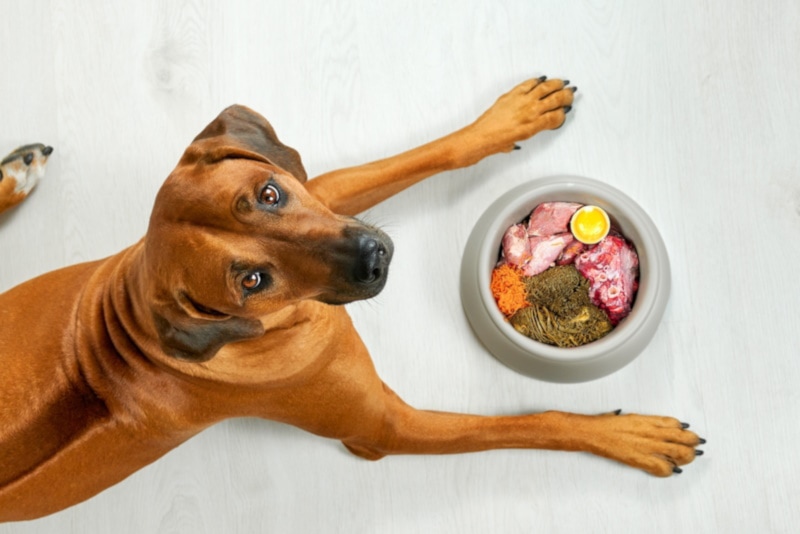
Click to Skip Ahead
English muffins are leavened bread rolls. When plain they consist of flour, butter, sugar, milk, salt, and yeast. Plain English muffins are not toxic to dogs, which means they won’t cause any immediate ill effects if your dog has a small piece, but they are not considered healthy for dogs, and if they contain additional or alternative ingredients, you may need to avoid giving them altogether.
Especially avoid those that use xylitol, an artificial sweetener and those that include toxic ingredients like garlic or even raisins. Also, be aware that processed English muffins may have many additional ingredients.
Dog Diet
Dogs are omnivores. They eat a combination of meat and plant-based ingredients. Generally, the protein in your dog’s diet should come from meat, with popular choices being chicken, beef, and lamb. Plant ingredients can offer further protein but will usually provide fiber, vitamins, minerals, and essential nutrients. Good quality dog food will have all the nutrition your dog needs to stay healthy.
Dogs also love treats. Treats can be healthy, with good examples including carrot sticks or slices of peeled and cored apple. You can also buy and give commercial treats, but you should ensure that you adjust your daily feeding amounts according to the calories you are feeding in treats.
Some human food can even be fed, albeit in moderation, as treats. A lot of human food has added salt or sugar, however, so you should feed these treats in moderation and always be sure to check the ingredients for potentially harmful and toxic ingredients.

Can Dogs Eat English Muffins?
English muffins can be fed as a treat to your dog in moderation, assuming that there are no harmful extra ingredients in the muffins. Feed a very small amount of the muffin—you should only ever really give a small piece at a time. If your dog does steal a muffin from your plate, monitor your dog to check for signs of gastrointestinal upset like vomiting or diarrhea.
Muffins and other baked goods consist mostly of carbs, and a dog’s diet should have limited carbohydrates. There are no real health benefits to feeding muffins, and the carbs and calories they include are considered empty because of this lack of nutritional benefit.
Muffin Ingredients

Added Ingredients
Many muffins, especially store-bought, processed muffins, contain additional or alternative ingredients. Xylitol, as mentioned above, is toxic for dogs, and even a relatively small amount can cause toxicity. Some muffins also contain additional ingredients. Raisins and chocolate are toxic and you should avoid feeding these to your dog completely.
Conclusion
Dogs are omnivores, and they eat a combination of different types of ingredients including meat and plant-based. They can enjoy some human food as an occasional treat, but you need to check the ingredients to ensure there is nothing toxic. Ideally, even the treats you feed your dog should be nutritious and healthy, with common choices including carrot sticks and apple pieces.
English muffins, which are baked goods, are not considered toxic, although they can be if there is any uncooked yeast left in the dough. They are full of sugar, however, and because they contain milk, they can also cause stomach upsets in lactose-intolerant dogs. If you intentionally feed English muffin to your dog, make sure you choose one that does not contain harmful ingredients like raisins or Xylitol and only feed a very small amount.
Featured Image Credit: DronG, Shutterstock









